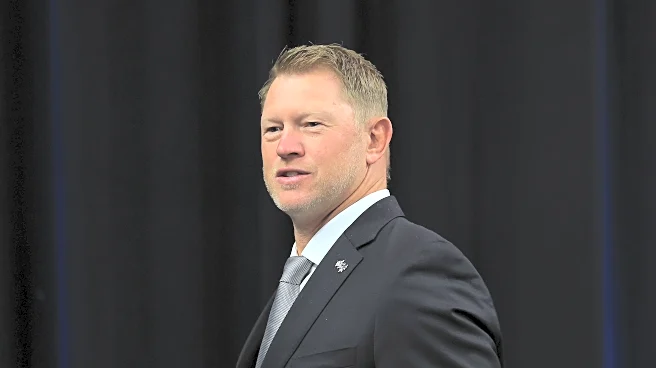When it was announced that Scott Frost was coming back to UCF, comparisons to “getting back together with your ex” abounded among the College Football Literati. It was quite possible that the only people
who believed this could work were in The Venue for the introductory press conference.
It wasn’t just scorned Nebraska people. History has shown that second go-arounds for college football head coaches at one school are often not as great as the first and sometimes outright bad.
Of the 16 previous coaches who have had second tenures at FBS programs in the previous half-century:
- Only seven posted a winning record in their second stint
- Only two improved their winning percentage in their second tenure
- Only five lasted longer the second time around than the first
Note that Frost and Rich Rodriguez are both in their first year of their second stints at their current schools.
And these are some pretty familiar, even prestigious names. So how can Scott Frost be UCF’s Bill Snyder, and not Johnny Majors?
The answer is almost cliche, but it’s true: Culture.
The Culture Keeper
Shaquem Griffin said it himself: Scott Frost is the Culture Keeper at UCF.
When Frost arrived in 2016, the culture George O’Leary built had been obliterated by a winless season. It was downright bitter, if not toxic.
Frost flipped that almost instantly by changing everything: uniforms, attitude, football philosophy, offensive system, and even allowing the players to form a leadership council. The results were as obvious as they were spectacular: 0-12 to 13-0 in 26 months.
That cutting-edge culture bled over into the Josh Heupel Era, but when Gus Malzahn took over, things began to erode. Although Malzahn was no Woody Hayes in terms of stodginess, the on-field results showed a clear deterioration: Since 2017, only once did UCF’s winning percentage improve from one year to the next, and that was Malzahn’s first season, the year after COVID (6-4 in 2020 under Heupel to 9-4 in 2021 under Malzahn).
Last season felt a lot more like 2015, where the bottom fell out on the field. Yet among those behind the scenes, the culture that Frost left behind still flickered.
That’s what gives Frost a leg up: He built it once, and there are many around him eager to build it again. Among them are coaches and former players from his first stint who have taken on staff roles in the second: McKenzie Milton, Sean Beckton Sr., Jordan Johnson, and Travis Fisher, among others.
Familiarity breeds that culture, and that’s a good thing because building a roster in College Football is a much different prospect than it was nearly a decade ago.
It’s a Different Ballgame
Yes, the portal and NIL have made things way different, but that’s also where UCF is placing a bet that culture can overcome financial shortcomings. UCF is not Ohio State, but we also offer something they don’t: The tightness of a community over being just another brick in the wall.
That doesn’t attract everyone, but it does attract a particular kind of player that might choose to stay more often than not — one who is mature, realistic, and willing to build something larger than themselves. They may not be the most talented, but talent only goes so far. After all, it’s not like UCF hasn’t developed NFL talent. Why not build yourself and the program at the same time?
If you’re looking for evidence of that, look who stayed here after Malzahn’s departure.
Nyjalik Kelly reportedly entered the portal, only to elect to stay.
John Walker, the highest-rated recruit in program history, could have taken his chances elsewhere after an injury forced him out of action last year, but he also stayed.
Now, there’s little doubt that keeping DL Coach Kenny Martin on staff was a major reason driving that, but that’s where culture comes from. Martin saw good reason to stay with Frost, so he did, and so did two talented players on his unit. Granted, Lee Hunter did leave for Texas Tech (and a reported $1.5 million), but limiting such damage from a coaching change is a positive indication.
How that all translates on the field is going to be a work in progress. Frost himself quipped in his introductory press conference that this rebuild was not going to go as quickly as the first one. And it will take a while because the hill UCF has to climb in the Big 12 in 2025 is vastly steeper than the one in The American in 2016.
There will be plenty of stumbles ahead, but that’s what makes the climb worth it. People forget UCF’s 6-7 2016 campaign because of what happened the following year. But that’s where the cultural seeds were planted for UCF’s resurgence.
Slow-cooking a meal tends to deliver better flavor than pressure-cooking it. This year, we may indeed see the mise-en-place of Scott Frost’s recipe for success.









